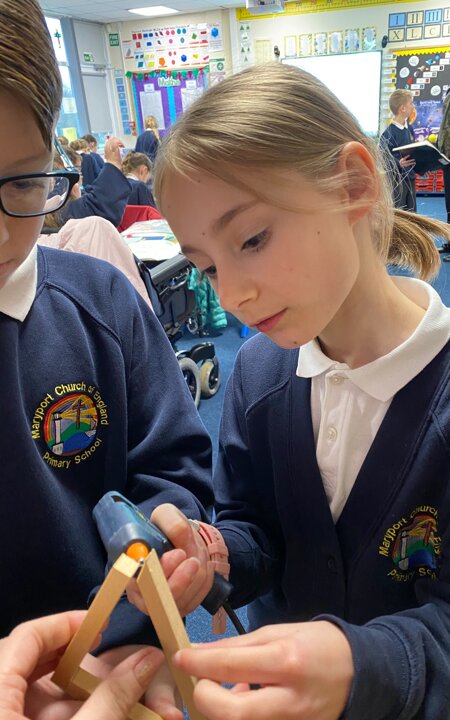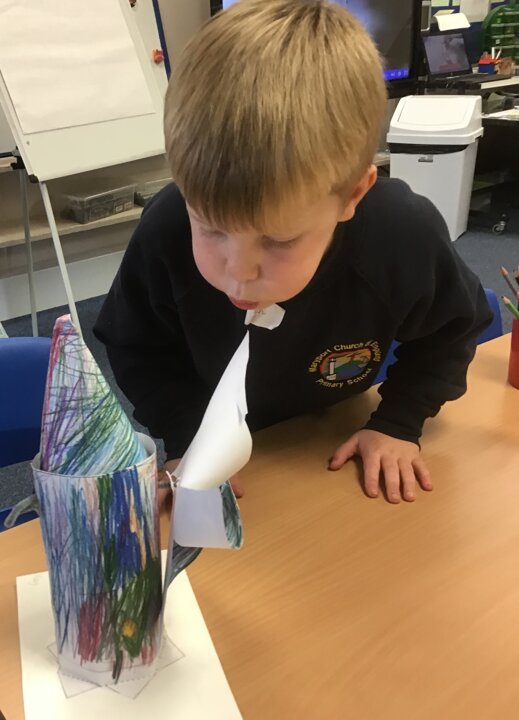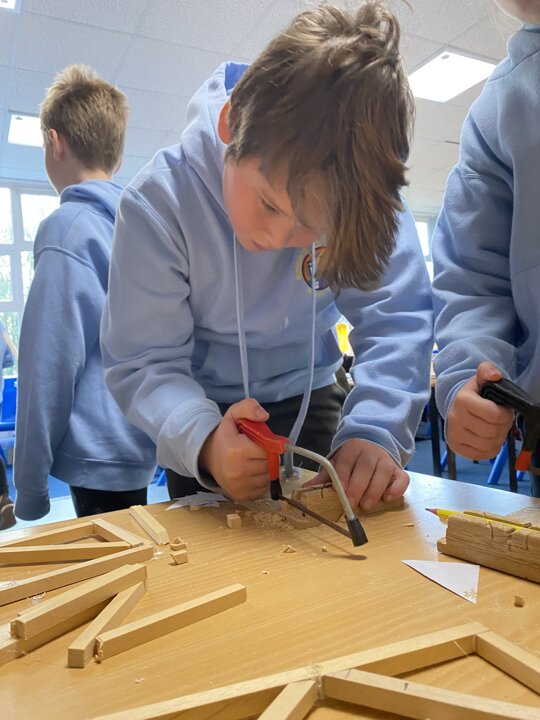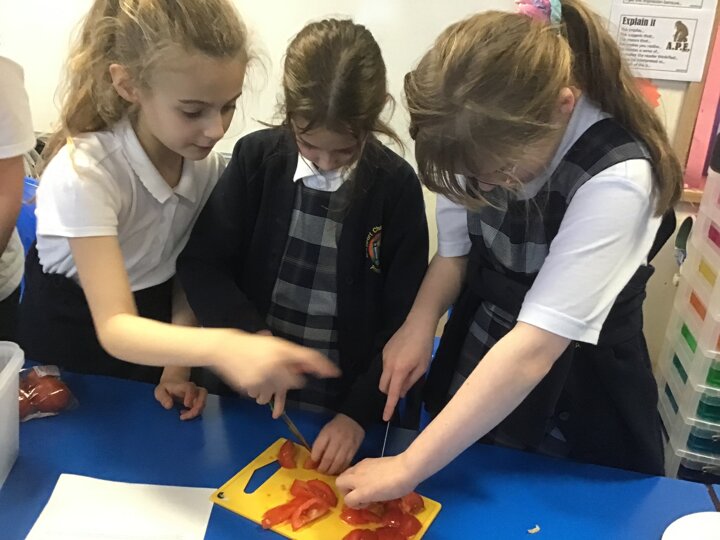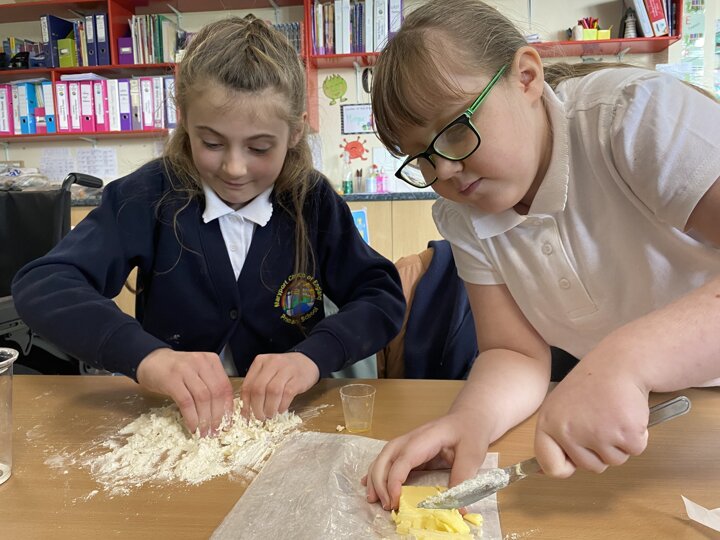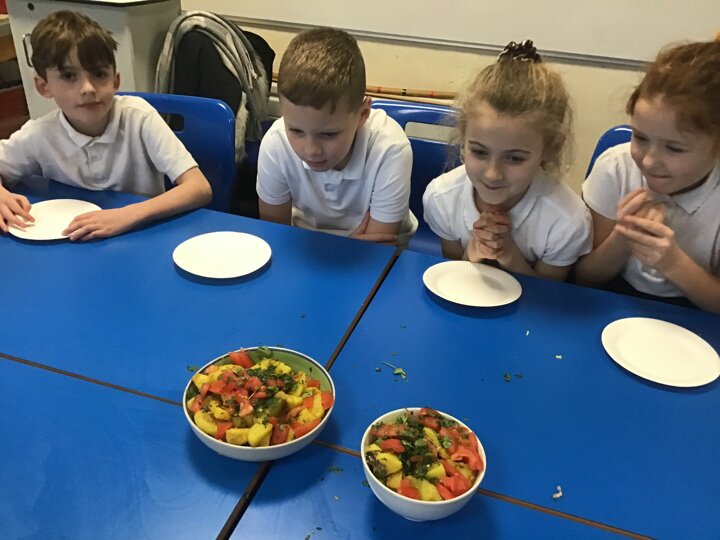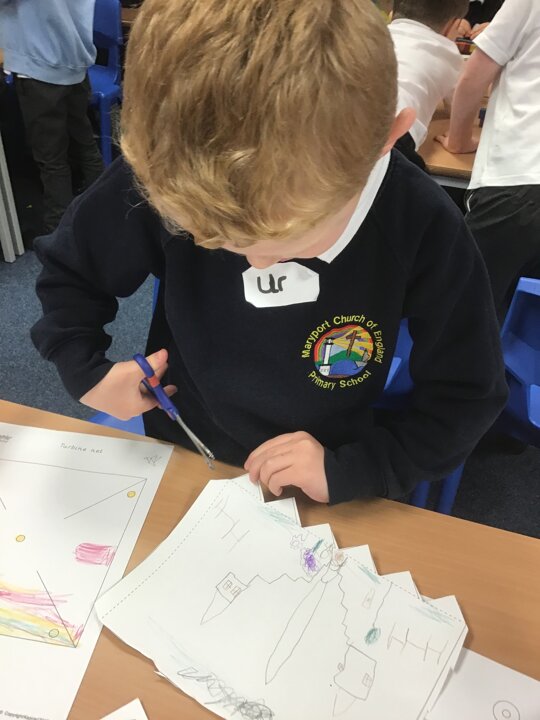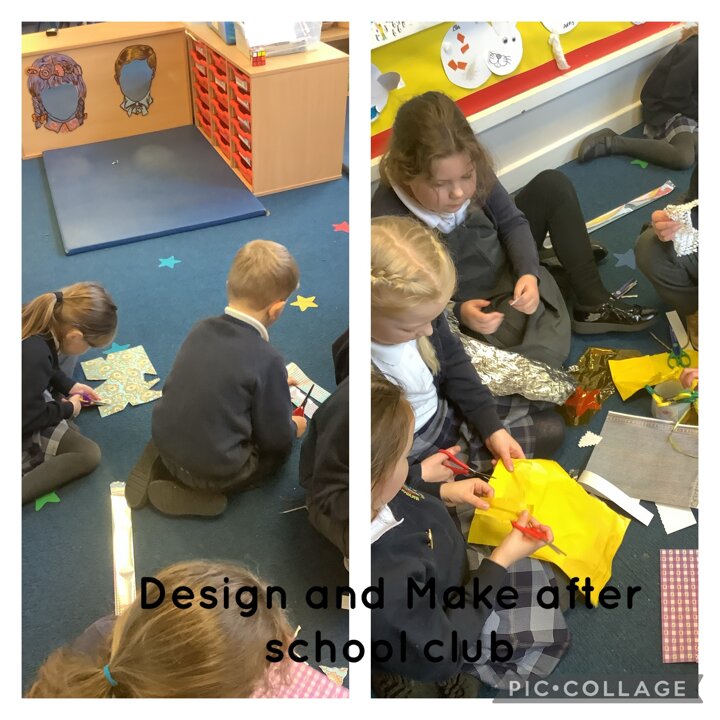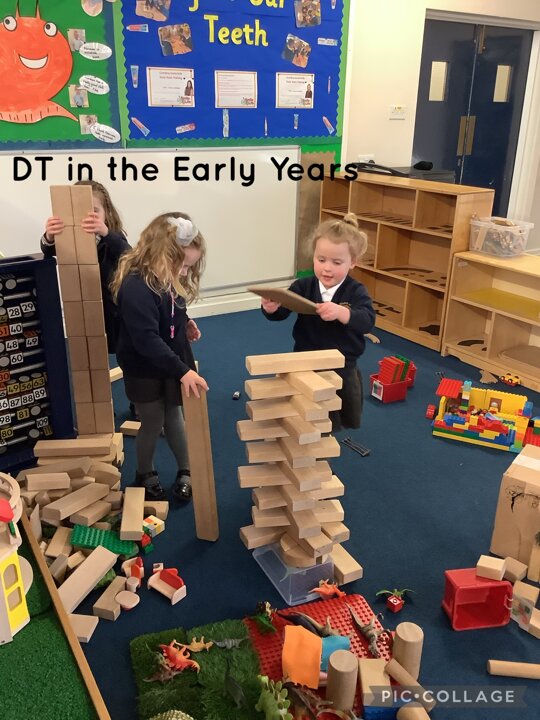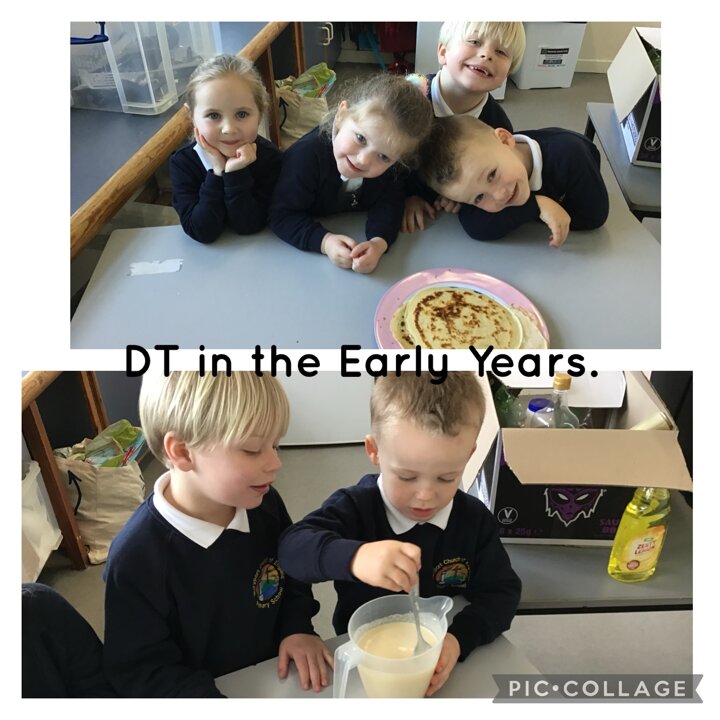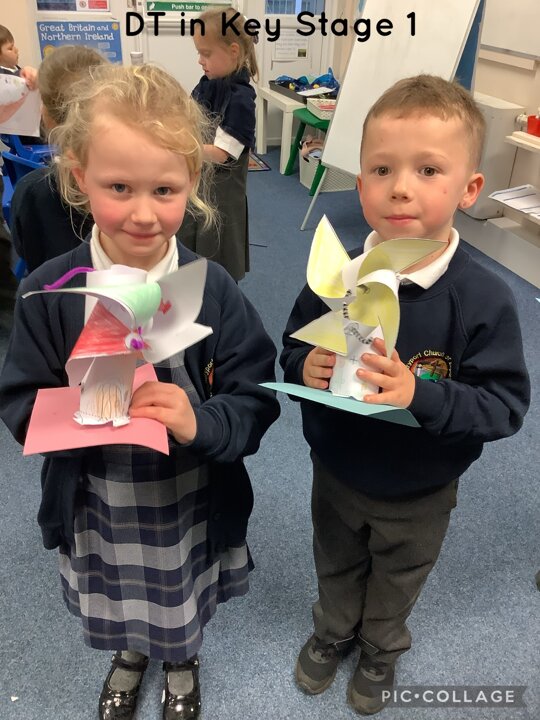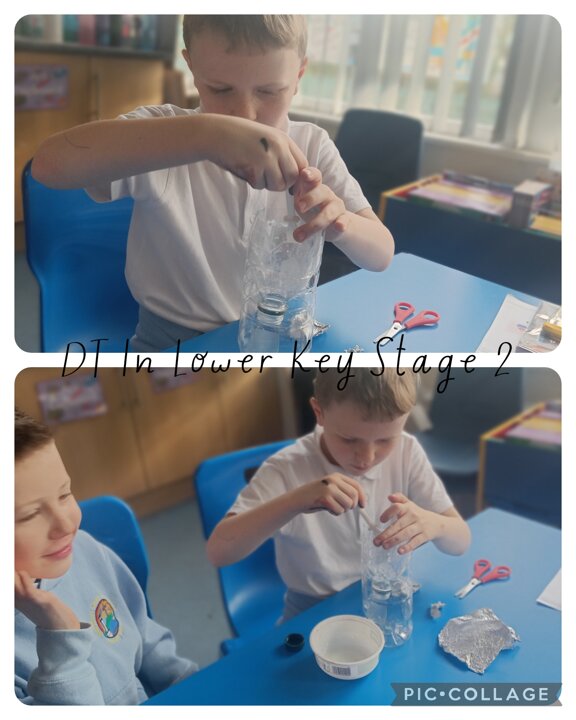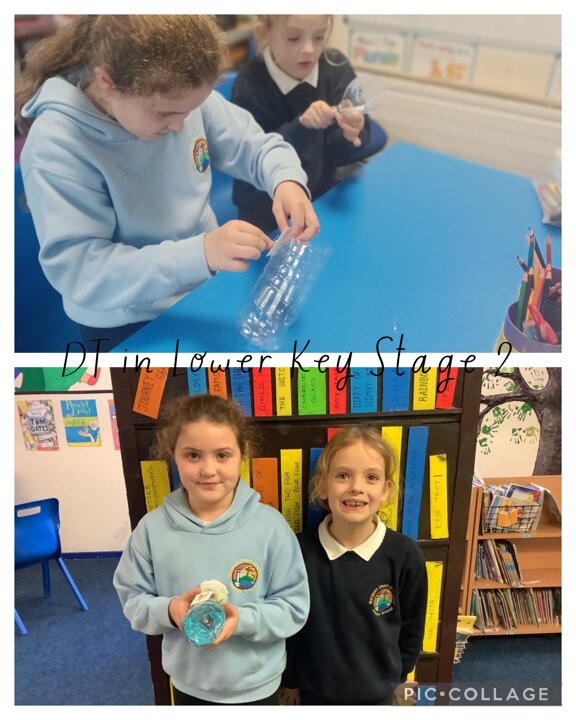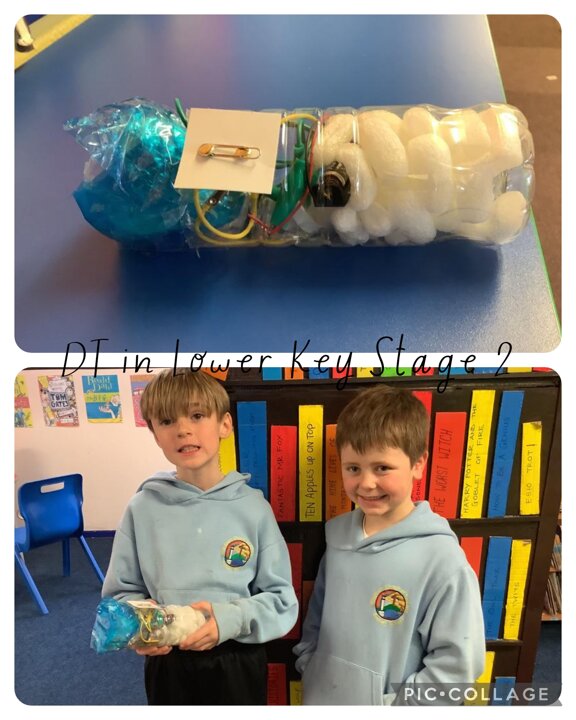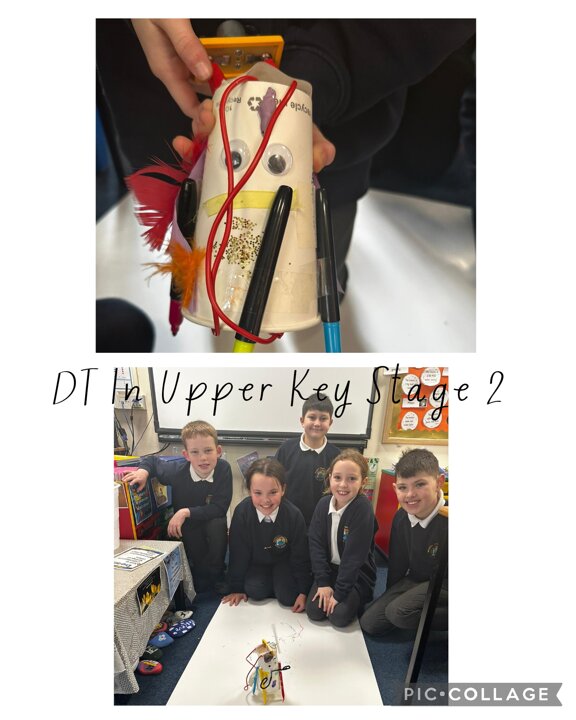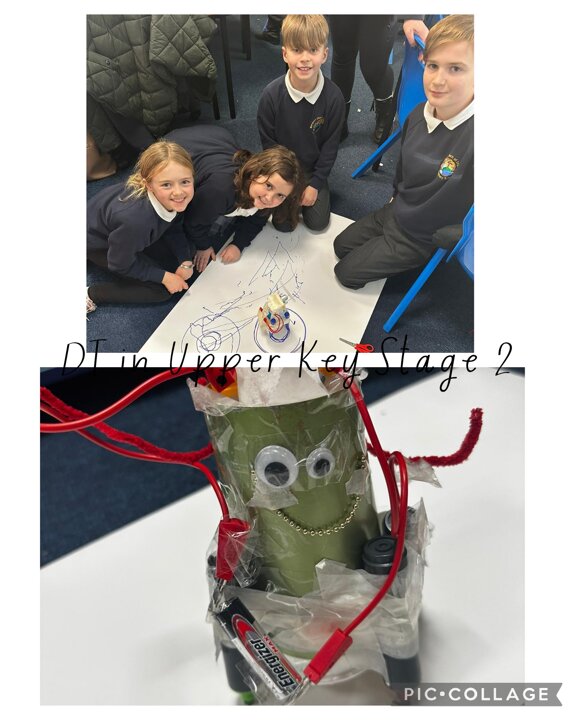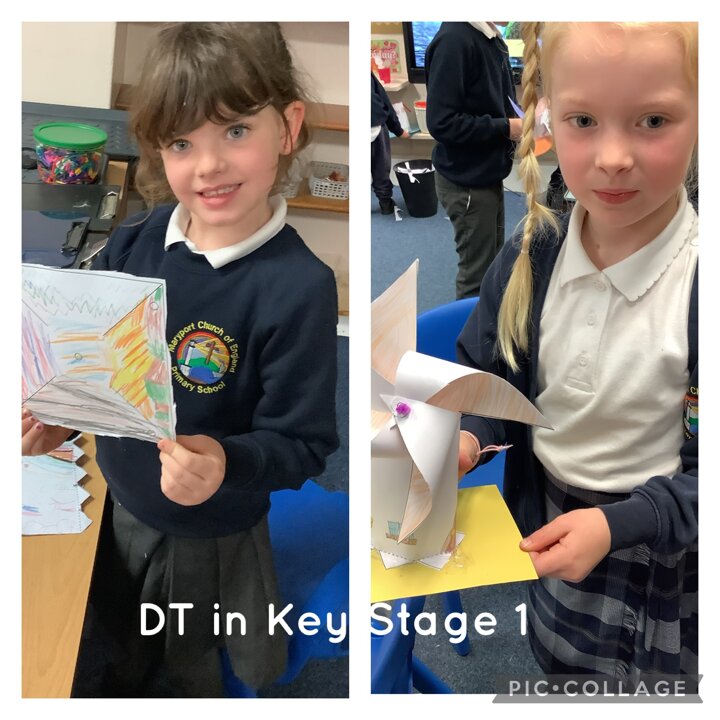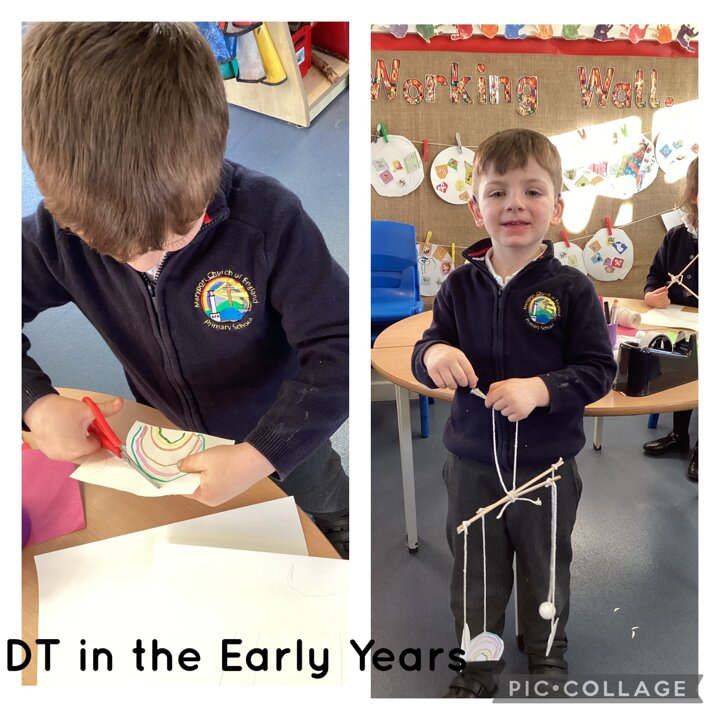Intent.
At Mayport Church of England Primary School our Design and Technology curriculum is designed to prepare our children for the forever developing world. Through the study of Design and Technology, children combine practical skills with an understanding of aesthetic, social and environmental issues, in order to design and make a product. The subject also encourages children to become creative problem solvers and risk takers, both individually and as part of a team.
We intend to expose our children to Design and Technology within a wide range of contexts that reflect the real world. All learning carries a defined purpose and meaning to the individual child.
We believe that through the delivery of high-quality DT lessons, we can teach our children to not only design and make but to evaluate existing products as well as their own. A strong focus on the importance of evaluation allows children to adapt and improve their work, providing them with not only a sense of achievement but a strong foundation for the next step of their learning and a key skill for life.
We also understand that the teaching of food and nutrition holds a great importance, especially in current times. For this reason, children will study food and nutrition in most year groups. By instilling a love of food and cooking in children, it equips them with a crucial life skill that enables pupils to feed themselves and others, now and in later life. We plan to further educate our children about nutritious food and where our food comes from. We will achieve this by offering children opportunities to grow and taste their own produce, visit farms, visit supermarkets and talk to other professionals in the food industry.
Implementation.
To ensure high standards of teaching and learning in Design and Technology, we implement a progressive curriculum throughout the whole school.
In the Early Years Foundation Stage (EYFS), our continuous provision is designed to promote skills of inquiry, problem solving, shared decision making and scientific approaches to ‘understanding the world’. This, alongside practitioners who are trained to observe, understand and develop these skills, will in turn, create confident and curious learners. Such learning in the Early Years will continue into Year 1. The children will have many opportunities to develop crucial skills when accessing our newly developed workshop/creative area. This builds the foundations, embeds learning and prepares the children for a more specific approach to Design and Technology as they move through school.
From Key Stage 1, we implement a scheme of work which is designed by leading subject specialists in Design and Technology. This ensures a full coverage of the whole primary age range, showing a clear progression of skills from year 1-6. The scheme offers a broad and balanced curriculum which underpins the expectations of the National Curriculum and supports teachers to achieve the learning outcomes of each project to a high standard. Each project consists of up to 5 lessons. The lessons offer the children opportunities to relate to current knowledge, discover new ways of thinking, communicate their ideas, explore existing products and draw on knowledge from other subjects such as Science, Mathematics, Computing and Art.
During each project, the children will follow the cycle of design, make and evaluate.
- Design- Children will always design products for an intended user, they will be rooted in real life and have a purpose in mind. Through research and study of design criteria, useful and fit for purpose products will be designed. When planning, the children will use a range of formats such as sketches with annotations, templates, communicating verbally and in some cases, computers will aid the design process.
- Make- Children will use a wide range of tools, materials and components including textiles, ingredients and construction equipment when making their products. They will build on their forever growing bag of knowledge and skills, such as joining, finishing, shaping and cutting in order to create high quality end results for a range of users.
- Evaluate- Our DT curriculum teaches children how to evaluate, test and critique their products and ideas. Children will be encouraged to use their natural sense of curiosity to investigate and analyse existing products and build on technical knowledge and vocabulary.
Impact
At Maryport Church of England Primary School we try to ensure that Design and Technology is given the same importance as other subjects. We seek to encourage children to share their DT experiences with others, display their work throughout the school and share their projects on Seesaw with friends and family. Displaying the children’s projects enhances the school environment and reflects the children’s sense of pride in their DT work. Subject and school leaders monitor the impact of our curriculum provision through completing regular monitoring, that includes listening to the voice of our children.
Our stimulating and progressive curriculum will ensure that the children at our school will have clear enjoyment and confidence in Design and Technology that they will then apply to other areas of the curriculum. Children will ultimately know more, remember more and understand more about this subject, demonstrating this knowledge when using tools or skills in other areas of the curriculum and in opportunities out of school. The large majority of children will achieve age related expectations in Design and Technology. As a result of this, children will develop skills and attributes they can use beyond school and into adulthood.
DT |
